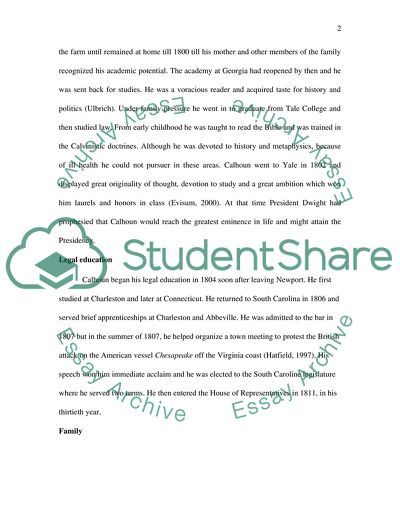Cite this document
(Biography of John C. Calhoun Essay Example | Topics and Well Written Essays - 3750 words, n.d.)
Biography of John C. Calhoun Essay Example | Topics and Well Written Essays - 3750 words. Retrieved from https://studentshare.org/biographies/1711545-john-c-calhoun
Biography of John C. Calhoun Essay Example | Topics and Well Written Essays - 3750 words. Retrieved from https://studentshare.org/biographies/1711545-john-c-calhoun
(Biography of John C. Calhoun Essay Example | Topics and Well Written Essays - 3750 Words)
Biography of John C. Calhoun Essay Example | Topics and Well Written Essays - 3750 Words. https://studentshare.org/biographies/1711545-john-c-calhoun.
Biography of John C. Calhoun Essay Example | Topics and Well Written Essays - 3750 Words. https://studentshare.org/biographies/1711545-john-c-calhoun.
“Biography of John C. Calhoun Essay Example | Topics and Well Written Essays - 3750 Words”, n.d. https://studentshare.org/biographies/1711545-john-c-calhoun.


